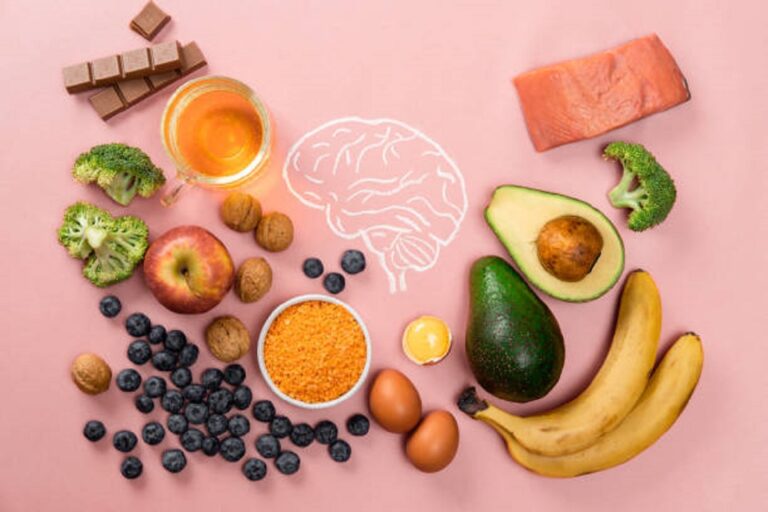HARVARD HEALTH’S GUT HEALTH SECRET THAT TAKES 5 MINUTES DAILY
I was scrolling through a Gut health article on Harvard Health at 2 AM some week back, trying to figure out why my stomach felt like it was plotting against me.
You know that feeling when you eat something and your gut just… rebels? Like it’s sending you passive-aggressive signals all day? Yeah, that was me some weeks ago after eating some leftover pizza.
Then I stumbled across something that made me sit up in bed. Harvard researchers discovered that our gut and brain are basically best friends who text each other constantly. And all their complicated research boiled down to one stupidly simple routine that takes less time than brewing coffee.
Let’s unravel this simple routine together.
What Harvard Actually Says About Your Gut
Before I share the secret routine that changed everything, let me break down what Harvard’s fancy researchers discovered without making your brain hurt.
Your gut isn’t just about digestion. According to Harvard Health, poor gut health can impact your overall health in a variety of ways, from stomach discomfort to less obvious effects on mood and immune function.
Think of your gut as a bustling city. Most people have hundreds, or even thousands, of different species of bacteria, viruses, and fungi living in their gut. Some are good neighbors, some are troublemakers, and they’re all having a constant party in your intestines.
Here’s where it gets interesting: different microorganisms may help support health in a variety of ways, including improved digestion and nutrient absorption, immune-system regulation, protection against harmful bacteria, reduced inflammation, and better brain health.
Translation? Happy gut = happy you. Angry gut = that bloated, cranky feeling that makes you question every food choice you’ve ever made.
The 5-Minute Harvard Gut Health Secret (That Actually Works)
After diving deep into Harvard’s research, I discovered their “secret” isn’t one thing – it’s a simple 5-minute morning routine that hits all their key recommendations.
I started doing this three weeks ago, and I’m not even kidding – my stomach stopped acting like a drama queen.
Here’s the routine:
Minutes 1-2: The Fiber Kickstart
Grab a glass of water and add 1 tablespoon of ground flaxseed or chia seeds. Stir and drink. Fiber serves as a prebiotic, or food for the good bacteria that live in your gut. Eating plenty of fiber is associated with increased microbial diversity and a reduced risk of gastrointestinal issues.
Minutes 3-4: The Stress Reset
Do some belly breathing. Stress causes hormones like adrenaline and cortisol to spike, leading to symptoms like diarrhea, constipation, stomach pain, and heartburn. Five deep breaths where your belly rises and falls. That does the trick. Harvard recommends this for managing the gut-brain connection.
Minute 5: The Hydration Boost
Drink another glass of water. Water is important for healthy digestion. It helps your body absorb and transport nutrients and helps prevent constipation. Most of us wake up dehydrated anyway, so this kills two birds with one stone.
That’s literally it. Five minutes. No supplements, no weird powders, no complicated diets.
Why This Stupidly Simple Routine Actually Works?
I know what you’re probably thinking: “This seems too easy.” That’s exactly what I thought until I understood why Harvard’s researchers keep coming back to these basics.
The Fiber Thing Makes Sense:
Most of us don’t get enough fiber. Aim to get 21 to 38 grams of fiber per day. Starting your day with fiber-rich seeds gives your gut bacteria breakfast before you even think about coffee. Smart, right?
The Stress Connection Is Real:
Here’s something mind-blowing: This gut-brain connection is powerful; it’s why we get butterflies before a big presentation, or feel nauseous when we’re in a high-stakes situation. Two minutes of breathing tells your gut to chill out before the day even starts.
The Water Factor:
When you become constipated, your gut microbiota changes, becoming less abundant. Starting hydrated keeps everything moving smoothly (literally).
What Happened When I Actually Did This For 3 Weeks
Week 1: I felt ridiculous talking to my stomach at 7 AM, but whatever. No major changes, just less morning bloating.
Week 2: My afternoon energy crashes disappeared. I used to hit a wall around 2 PM and need another coffee. Not anymore.
Week 3: Here’s the weird part – my mood got better. I’m not saying I turned into a morning person (let’s not get crazy), but I stopped feeling like garbage before lunch.
The best part? I actually started craving healthier foods. Not in a “I should eat salad” way, but in a “my body is asking for good stuff” way.
The Harvard Research That’ll Make You Rethink Everything
Want to know something that’ll blow your mind? Harvard researchers say that a healthy and diverse gut microbiome may help reduce your risk of conditions including diabetes, inflammatory bowel disease, psoriatic arthritis(whatever that is), some cancers, GI disorders, and cardiovascular disease(What research says, not me).
Read that again. Your gut health affects way more than just digestion.
Research published in Frontiers in Microbiology found that certain bacteria in your gut may impact your sleep in a variety of ways, from your likelihood of experiencing insomnia, to how frequently you need to nap to how long you stay asleep at night.
So that terrible sleep I was having? Partly my gut’s fault. Mind = blown.
The Other Harvard Gut Health Tips (For When You’re Ready)
Once you master the 5-minute routine, here are some gut health upgrades that Harvard recommends;
Move Your Body: Participating in 150 to 270 minutes of moderate- to high-intensity exercise per week for at least six weeks has a positive effect on your gut microbiota. You don’t need to become a gym rat – walking counts.
Sleep Better: Most people should aim to get seven to nine hours of sleep a night. Your gut bacteria apparently have opinions about your bedtime.
Add More Fiber Foods: Fiber is found in a variety of foods, including legumes, whole grains, avocados, sweet potatoes, Brussels sprouts, tofu, berries, leafy greens, and nuts and seeds.
But honestly? I suggest you start with the 5-minute routine. Don’t overwhelm yourself with everything at once.
What Nobody Tells You About Gut Health
Here’s the truth nobody mentions: your gut is basically your second brain, and it’s been trying to talk to you this whole time.
Those random food cravings? Your gut is asking for specific nutrients.
That “gut feeling” about something being wrong? Actually your gut bacteria sending signals to your brain.
That bloated, gross feeling after eating junk? Your gut literally saying “what the hell did you just feed me?”
The 5-minute routine isn’t magic – it’s just finally listening to what your gut has been trying to tell you.
Why Harvard Gut Health Tips Beat Complicated Diets
I’ve tried elimination diets, expensive probiotics, and enough gut health supplements to stock a small pharmacy. Know what worked? This embarrassingly simple routine that costs maybe 50 cents a day.
Harvard’s researchers aren’t trying to sell you anything. They’re just sharing what actually works based on real science. No marketing, no miracle claims, just facts.
The best part? You can’t mess this up. Drink water, eat fiber, breathe deeply. Even if you do it wrong, you’re still doing something good for yourself.
Q: What are the best Harvard gut health tips for beginners?
A: Start with the 5-minute routine: fiber-rich seeds in water, 5 deep breaths, and extra hydration each morning. Harvard research shows these three things support gut microbiome diversity and reduce digestive issues without overwhelming your system.
Q: How long does it take to see results from simple gut health changes?
A: Based on Harvard studies, you might notice changes in 1-2 weeks, but significant gut microbiome improvements happen after 6 weeks of consistent habits. I felt less bloated within days and had better energy within 2 weeks.
Q: What foods does Harvard recommend for gut health?
A: Harvard emphasizes fiber-rich foods like legumes, whole grains, avocados, berries, leafy greens, nuts, and seeds. The key is variety – different fibers feed different good bacteria in your gut, creating better diversity.
Q: Can stress really affect your gut health according to Harvard research?
A: Absolutely. Harvard explains that stress hormones like cortisol directly impact digestion, causing symptoms like stomach pain, diarrhea, or constipation. The gut-brain connection is so strong that managing stress often improves digestive issues.
The Bottom Line (No Pun Intended)
Here’s what I learned from diving into Harvard’s gut health research: you don’t need to be perfect. You don’t need expensive supplements or have to eliminate every food you enjoy.
You just need to show your gut some basic respect with simple, science-backed habits.
The 5-minute routine works because it addresses the main things Harvard researchers say matter most: feeding good bacteria, managing stress, and staying hydrated.
So, why don’t you start tomorrow morning? Set a timer for 5 minutes. Drink fiber water, breathe deeply, drink more water. That’s it.
Your gut will thank you, your energy will improve, and you’ll probably wonder why you made this so complicated before.
And if you’re like me and tend to overthink everything health-related, remember: sometimes the simplest answers are the right ones. Harvard’s researchers spend years studying this stuff so we don’t have to.
Trust the science, keep it simple, and give your gut the attention it deserves.
Want more no-nonsense health tips based on real research? Subscribe for weekly reality checks that actually make sense in real life.
Resources Used:
– Harvard Health Publishing: “5 simple ways to improve gut health” (February 2025)
– “The gut-brain connection” published by Harvard Health (July 2023)
– “Feed your gut” by Harvard Health (April 2023)
– Harvard Health Publishing: “Can gut bacteria improve your health?” (September 2023)
– Frontiers in Microbiology research on gut bacteria and sleep (referenced in Harvard Health)
– Nutrients journal systematic review on exercise and gut microbiota (referenced in Harvard Health)





5 Comments